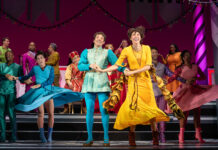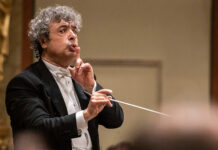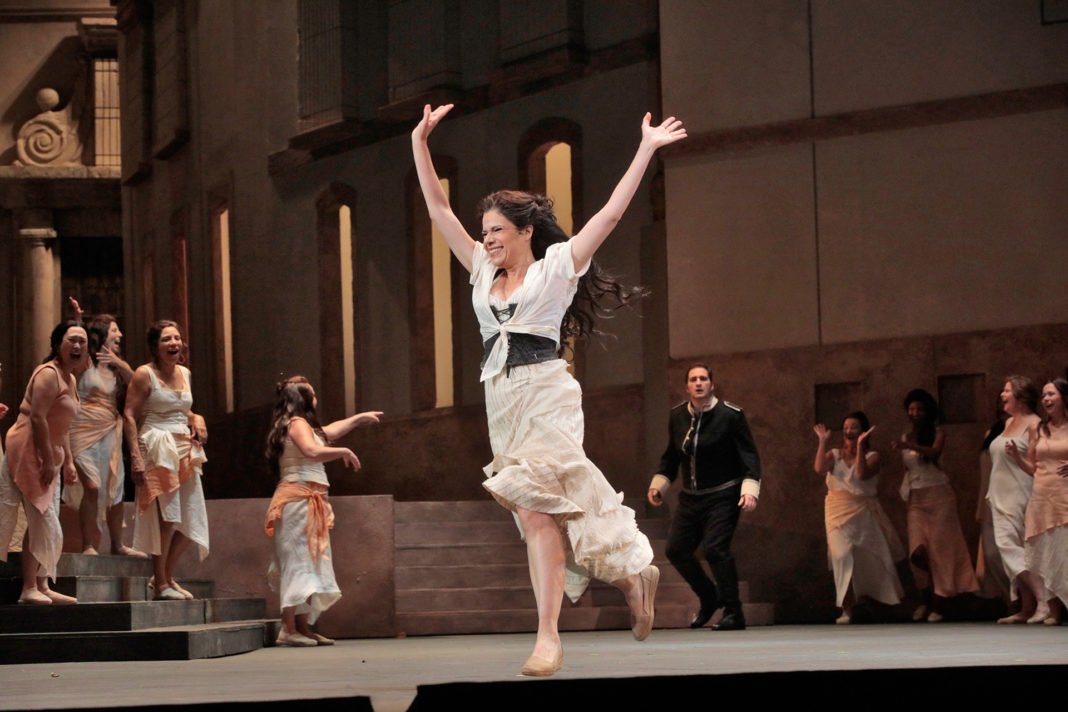Imagine being a six-year-old asked to watch an opera. Let’s be honest, how many six-year-olds want to do that? But if your mother is singing in the production you are probably a bit more motivated. And how lucky would you be if your mother was singing in a production of Carmen with Plácido Domingo? That’s precisely what happened to soprano Ana María Martínez while growing up in Puerto Rico. Her mother wasn’t singing the title character, but Martínez is in the current LA Opera production of Bizet’s very popular opera.
I spoke recently by phone with Martínez about this production and the challenges she faced in doing her third Carmen.
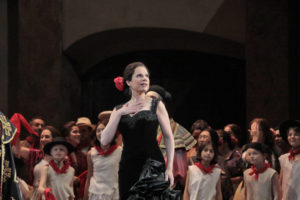
When you were watching your mother on stage did you ever think you, too, would be an opera singer performing Carmen?
I never thought I would do the role of Carmen. I never thought I’d be stepping into those shoes. I found her power frightening. She is unapologetic all the way. She calls it like it is. When I made my debut in Giessen, Germany, the old director was an American stage director, Robert Tannenbaum. He hired several Americans to come over. It was a great way to get my feet wet. One of the reviewers thought that even though I was a soprano, he thought I would be an ideal Carmen. There was enough innocence and natural sexuality.
You take the stage and after a brief exchange your first aria is the “Habeñera,” perhaps one of the best-known arias in all of opera. Isn’t starting a show like that a bit like Barbra Streisand beginning a concert with “People” or Elton John starting with “Bennie and the Jets?”
That is brilliant. It does feel like that. I’m hearing your question and thinking of myself backstage as I’m doing lunges and squats before I go out there to make sure I’m limber and I have that energy that she has to bring without trying. It’s a piece that makes time stand still. Most roles I do are ingénue characters and when time stands still it is usually ethereal. Here it is about the earth, sex, the mystery of love and desire that is making time stand still while everybody is drooling, wanting to be with her. It’s wonderful. It’s one of those things that is on your bucket list.
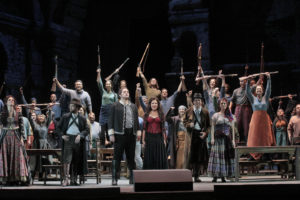
What do you have in common with Carmen?
That’s a great question. When I was first doing the character, I was so intimidated by her because she’s the most charismatic woman in opera. Everyone is wanting to be with her or wanting to be her or frightened by her. She definitely goes for what she wants and she is sexual all the time. I usually keep those things, when I’m facing society, toned down. The way she carries herself is not the way I do. So I was judging her. I recall a story I read where a child was trapped under the wheel of a car and the mother was able to muster enough strength to lift the car so the child could be freed. That is fierce. We all have that inside of us. I think Carmen would do the same thing. With that I’m able to justify everything she does in the story.
What is one of the most important things people should know about this opera and the fantasy of Carmen?
I think we need to see it and look at it. Her story is told by men who have written the story (Henri Meilhac and Ludovic Halévy, based on the novella by Prosper Mérimée) and composed the opera (Georges Bizet). They put her in the opera, but at the end they have to kill her. It’s every man’s fantasy or several women’s fantasy, everyone’s fantasy is to admire her, dominate her, be with her or fear her and have to destroy her.
Additional performances of Carmen take place on September 20, 23, 28 and October 1st. Can’t make it to Carmen? LA Opera will be live simulcasting the September 23rd performance at Exposition Park and also the Santa Monica Pier. The simulcast begins at 7 PM.
Photo Credit: Ken Howard/LA Opera


